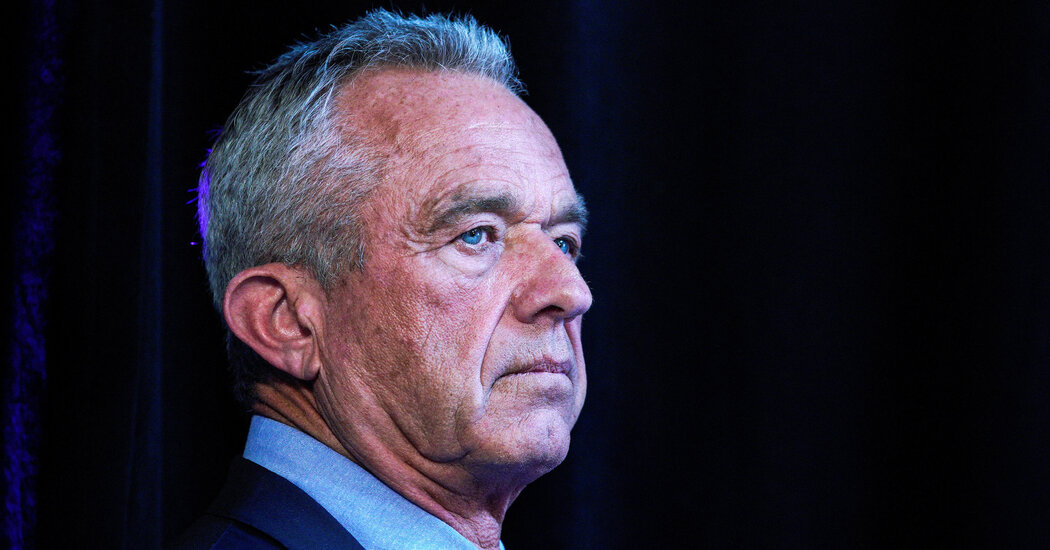
In 2010, Robert F. Kennedy Jr. was experiencing memory loss and mental fogginess so severe that a friend grew concerned he might have a brain tumor. Mr. Kennedy said he consulted several of the country’s top neurologists, many of whom had either treated or spoken to his uncle, Senator Edward M. Kennedy, before his death the previous year of brain cancer.
Several doctors noticed a dark spot on the younger Mr. Kennedy’s brain scans and concluded that he had a tumor, he said in a 2012 deposition reviewed by The New York Times. Mr. Kennedy was immediately scheduled for a procedure at Duke University Medical Center by the same surgeon who had operated on his uncle, he said.
While packing for the trip, he said, he received a call from a doctor at NewYork-Presbyterian Hospital who had a different opinion: Mr. Kennedy, he believed, had a dead parasite in his head.
The doctor believed that the abnormality seen on his scans “was caused by a worm that got into my brain and ate a portion of it and then died,” Mr. Kennedy said in the deposition.
Now an independent presidential candidate, the 70-year-old Mr. Kennedy has portrayed his athleticism and relative youth as an advantage over the two oldest people to ever seek the White House: President Biden, 81, and former President Donald J. Trump, 77. Mr. Kennedy has secured a place on the ballots in Utah, Michigan, Hawaii and, his campaign says, California and Delaware. His intensive efforts to gain access in more states could put him in a position to tip the election.
He has gone to lengths to appear hale, skiing with a professional snowboarder and with an Olympic gold medalist who called him a “ripper” as they raced down the mountain. A camera crew was at his side while he lifted weights, shirtless, at an outdoor gym in Venice Beach.
